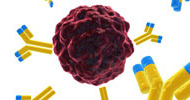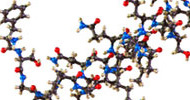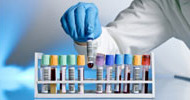Description
July 9, 2013. Aldevron (Fargo, ND) announced today its participation in a joint research project partiallyfunded by the German state (Bundesministerium für Bildung und Forschung) entitled “Bioactive selforganising vascular graft: VascuTrap” (started September 1, 2012) together with Aesculap AG, polyMaterials AG, Natural and Medical Sciences Institute of Tübingen University (NMI) and the University Hospital, Tübingen. The total volume of this project is 1.289 million EURO over three years.
Millions of patients worldwide suffer from coronary arterial diseases and in the USA alone, 1.5 million bypass operations are carried out per year to treat these diseases. Many patients require synthetic bypasses, the materials of which are however, thrombogenic leading to premature blockages. The overall goal of this VascuTrap project is to generate long-lasting synthetic blood vessel bypasses for patients suffering from coronary arterial diseases, but also as improvements for treatment of blockages in the aorta or in peripheral arteries. The idea is to coat these synthetic vessels with patient´s own endothelial cells, in vivo to avoid premature blockages and thereby prolong the life-span of these synthetic vessels.
"This has tremendous potential for developing more efficient forms of graft for coronary arterial diseases sufferers” said Dr John Thompson, Managing Director of Aldevron Freiburg. “This project will enable us to apply our core technology to develop antibodies with high specificity against cell surface
marker molecules that will help prolong the life-span of synthetic blood vessel grafts.”
Aldevron Freiburg´s role in this interdisciplinary project is to develop specific antibodies against a marker protein on the cell surface of the patient´s own progenitor endothelial stem cells that are responsible for building new blood vessels. The progenitor cells are found in small numbers in the circulation. The antibodies will be coated onto the interior surface of the synthetic bypass, in order to trap the circulating endothelial stem cells. These will then generate a patient-autologous blood vessel within the synthetic bypass, thereby disguising any thrombogenic influences and hopefully prolonging
the life-span of such grafts. Aesculap AG is responsible for the development of new synthetic bypasses, polyMaterials AG will be responsible for attachment of the active antibodies generated by Aldevron Freiburg GmbH to the inner surface of these bypasses. The NMI is responsible for the in vitro
testing and optimization of these coated synthetic blood vessels and the University Hospital Tübingen will be responsible for the pre-clinical testing and optimization for patients.















